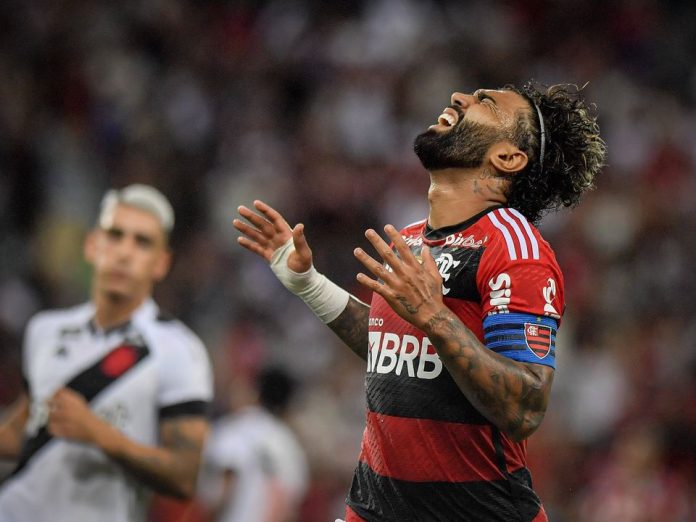Flamengo striker Gabigol finds himself embroiled in a controversy that has seen him suspended for two years due to attempted fraud in an anti-doping test. The Anti-Doping Sports Court, after a trial that commenced last week, reached a verdict on Monday, finding the former Benfica player guilty of the said offense. Gabigol, who had a loan spell at Benfica from Inter during the 2017/2018 season, now faces this significant setback in his career.
The suspension, as reported by the Brazilian press, is set to start from April onwards. Despite this ruling, the Brazilian international still has the option to appeal against the decision. The severity of the punishment reflects the seriousness of the allegations against Gabigol and highlights the strict adherence to anti-doping regulations within the sports realm.
Recap of the Incident
The incident in question took place on April 8 at Flamengo’s training center, Ninho do Urubu. Allegations indicate that Gabigol deliberately obstructed the process of the anti-doping test upon the arrival of the individuals responsible for collecting samples for analysis at 8:40 am. While all other Flamengo players completed the test before the scheduled training session at 10 am, Gabigol reportedly evaded cooperation.
Gabigol’s actions, which included ignoring the examiners both before and after the training session, raised suspicions of intentional non-compliance. Instead of fulfilling the necessary procedures for the urine collection, he opted to proceed to lunch, showcasing a lack of regard for the protocols mandated by the Brazilian Doping Control Authority (ABCD). Reports from Globoesporte indicate a concerning level of disrespect exhibited by Gabigol towards the analyzing personnel during the process.
Implications for Gabigol and Football Community
The verdict against Gabigol carries significant implications not only for the player himself but also for the football community at large. The imposition of a two-year suspension underscores the unwavering commitment to maintaining integrity and fair play within competitive sports. Such instances serve as a stark reminder of the repercussions individuals face for breaching anti-doping regulations and attempting to manipulate the testing processes essential for safeguarding the sport’s credibility.
As Gabigol contemplates his next steps, the possibility of an appeal may offer a glimmer of hope in overturning or mitigating the severity of the suspension. However, the incident serves as a cautionary tale for athletes worldwide, echoing the importance of upholding ethical standards and abiding by anti-doping protocols without exception.
The episode involving Gabigol sheds light on the gravity of maintaining transparency and accountability in anti-doping practices, emphasizing the collective responsibility shared by athletes, clubs, and sporting authorities in preserving the essence of fair competition. Moving forward, the football community awaits the outcome of any potential appeals while reaffirming a steadfast stance against any form of doping-related misconduct.
In conclusion, Gabigol’s suspension for attempted doping test fraud serves as a poignant reminder of the imperative nature of compliance with anti-doping regulations in sports. The repercussions of such actions extend beyond individual consequences to encompass broader implications for the integrity and credibility of competitive sports. As the football world processes the news of Gabigol’s suspension, it underscores the enduring commitment to upholding ethical standards and fostering a climate of clean competition across all levels of the game.



















































